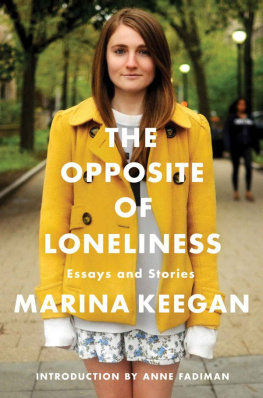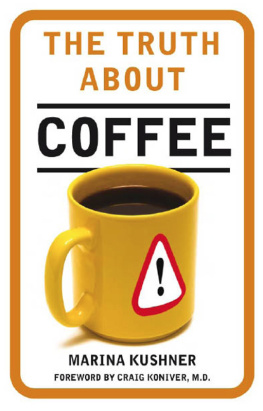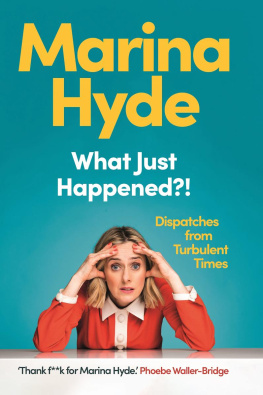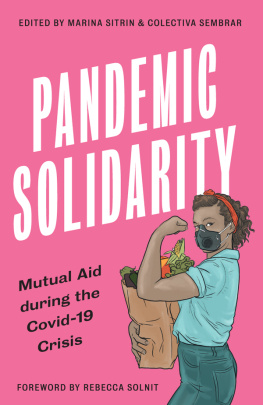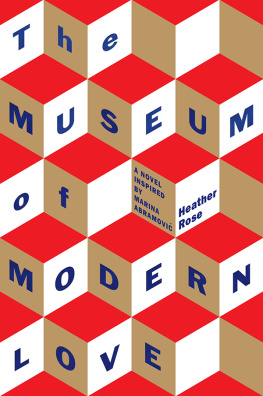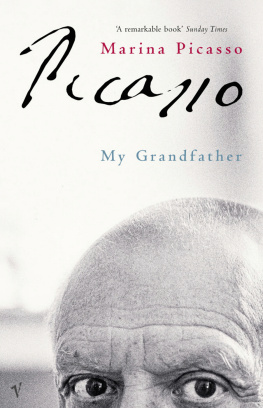Thank you for downloading this Scribner Books eBook.
Sign up for our newsletter and receive special offers, access to bonus content, and info on the latest new releases and other great eBooks from Scribner Books and Simon & Schuster. CLICK HERE TO SIGN UP or visit us online to sign up at
eBookNews.SimonandSchuster.com


SCRIBNER
A Division of Simon & Schuster, Inc.
1230 Avenue of the Americas
New York, NY 10020
www.SimonandSchuster.com
Portions of this book are works of fiction. Any references to historical events, real people, or real places are used fictitiously. Other names, characters, places, and events are products of the authors imagination, and any resemblance to actual events or places or persons, living or dead, is entirely coincidental.
Portions of this book are works of nonfiction. Certain names and identifying characteristics have been changed.
Copyright 2014 by Tracy and Kevin Keegan
All rights reserved, including the right to reproduce this book or portions thereof in any form whatsoever.
For information, address Scribner Subsidiary Rights Department, 1230 Avenue of the Americas, New York, NY 10020.
First Scribner hardcover edition April 2014
SCRIBNER and design are registered trademarks of The Gale Group, Inc., used under license by Simon & Schuster, Inc., the publisher of this work.
For information about special discounts for bulk purchases,
please contact Simon & Schuster Special Sales at 1-866-506-1949 or
business@simonandschuster.com.
The Simon & Schuster Speakers Bureau can bring authors to your live event. For more information or to book an event, contact the
Simon & Schuster Speakers Bureau at 1-866-248-3049 or
visit our website at www.simonspeakers.com .
Jacket design by Janet Hansen
Jacket photograph Joy Shan
Manufactured in the United States of America
1 3 5 7 9 10 8 6 4 2
Library of Congress Control Number: 20013030131
ISBN 978-1-4767-5361-4
ISBN 978-1-4767-5362-1 (ebook)
Dedication
I will live for love and the rest will take care of itself were Marinas words on graduation day, the last time we saw her. The Opposite of Loneliness is dedicated to love. Our hope is that Marinas message of love will inspire readers to imagine the possibilities and make a difference in the world.
Tracy and Kevin Keegan
Contents

Do you wanna leave soon?No, I want enough time to be in love with everything...And I cry because everything is so beautiful and so short. Marina Keegan, from the poem Bygones
Introduction

I first saw Marina Keegan on November 10, 2010. I was hosting the novelist Mark Helprin at a masters tea at Yale, during which he said that making it as a writer today was virtually impossible.
A student stood up. Thin. Beautiful. Long, reddish-brown hair. Long legs. Flagrantly short skirt. Nimbus of angry energy. She asked Helprin if he really meant that. There was a collective intake of breath in the room. It was what everyone else had been thinking but no one else had been brave (or brazen) enough to say.
That night, I got an e-mail from marina.keegan@yale.edu:
Hello! I dont think you know me, but I was the student who asked the question... Hearing a famous writer tell me that the industry is dying and that we should probably do something else was sad. Perhaps I just expected him to be more encouraging of those hoping to stop the death of literature.
To stop the death of literature: Marina was being simultaneously self-mocking (if shed said that line aloud, she would have overacted, with plenty of pregnant pauses and overenunciated consonants, so youd know it was hyperbole) and 100 percent serious.
She applied to my class on first-person writing a few weeks later. Her application began:
About three years ago, I started a list. It began in a marbled notebook but has since evolved inside the walls of my word processor. Interesting stuff. Thats what I call it. Ill admit its become a bit of an addiction. I add to it in class, in the library, before bed, and on trains. It has everything from descriptions of a waiters hand gestures, to my cab drivers eyes, to strange things that happen to me or a way to phrase something. I have 32 single-spaced pages of interesting stuff in my life.
In my class, which she took in the spring of her junior year, she drew on those thirty-two pages of interesting stuff to write a series of essays that her classmates, in their written critiques, festooned with awestruck adjectives: beautiful, vivid, vibrant, visual, fresh, direct, lyrical, compelling, evocative, precise, confident, honest, startling. (Three of the pieces in this book are from that class. Others are from Yale writing classes taught by John Crowley and Cathy Shufro; some are from student periodicals; and threeBaggage Claim, Sclerotherapy, and I Kill for Moneywere written during Marinas junior and senior years at the Buckingham Browne & Nichols School, in classes taught by Harry Thomas and Brian Staveley.)
Many of my students sound forty years old. They are articulate but derivative, their own voices muffled by their desire to skip over their current age and experience, which they fear trivial, and land on some version of polished adulthood without passing Go. Marina was twenty-one and sounded twenty-one: a brainy twenty-one, a twenty-one who knew her way around the English language, a twenty-one who understood that there were few better subjects than being young and uncertain and starry-eyed and frustrated and hopeful. When she read her work aloud around our seminar table, it would make us snort with laughter, and then it would turn on a dime and break our hearts.
I always ask my students to append to their final essay a list of Personal Pitfallsthe aspects of their writing they wish to work on in the future. These were some of Marinas:
Too much polysyndeton. Watch it!Dont overdo the anaphora.Be careful of weird strange phrases and their prepositions.Be careful of parallels.Make your titles good! Dont just choose them at the last minute! Avoid alliteration!Make sure modifiers make sense.Add more real stories when talking about general ideas.Make sure to spell-check homophones like its and its by searching the document before finishing.Dont use too many adverbs in one sentence.Similes must actually be capable of doing their thing. You cant curl up like a spoon.Unusual phrases work better at the end of paragraphs.I lay an egg, I laid an egg, I have laid an egg. I lie, I lay, I have lain.Topic indecisionjust get over it!Make sure tenses are consistent.Dont use two prepositions in a row.Dont get too attached to things. It only took you a minute to write that sentence!THERE CAN ALWAYS BE A BETTER THING!
* * *
High on their posthumous pedestals, the dead become hard to see. Grief, deference, and the homogenizing effects of adulation blur the details, flatten the bumps, sand off the sharp corners. Marina was brilliant, kind, and idealistic; I hope I never forget that she was also fierce, edgy, and provocative. A little wild. More than a little contrarian. If you wanted a smooth ride, Marina wasnt your vehicle. When we met for an hour-long conference to edit her first essay together, we got through three and a half lines. She resisted my suggestions because she didnt want to sound like me; she wanted to sound like herself. In class, she had strong opinions about the writers we read. She hated Lucy Grealy even though most of her classmates loved her, and loved Joyce Maynard even though most of her classmates hated her. She both admired and envied other talented young writers. When I posted exemplary essays by two students from a previous class, she wrote, AHHHH ALICES ESSAY IS SO GOOD OH MY GOD.... ELISAS IS SO GOOD TOO! oh my gosh. No i wont get dampened... She frequently lost her keys and her cell phone, sometimes for days, sometimes inside her bag, an infinitely capacious, ink-stained tote (you might have expected someone as entropic as Marina to choose a bag with a zipper, but, as in all else, openness was her hallmark); she was given to procrastination and the all-nighters that inevitably followed; she was frustrated by deadlines, bureaucracies, obtuse politicians, the gap between theory and practice, her roommates habit of using a knife to cut bread and then dipping it in the Nutella jar, and her own tendency to forget things, all of which inspired the all-purpose e-mail-and-text expletive GAH!
Next page
